Commute Choice
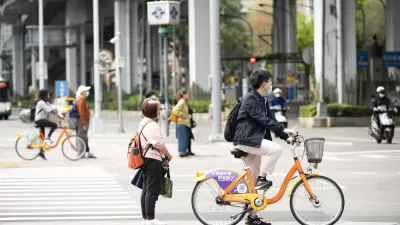
Bikes Gain Popularity as People Ditch Subways and Buses
Bike counts and bike share rides are increasing in two of the country's largest cities as commuters look for transportation modes that allow for physical distancing.
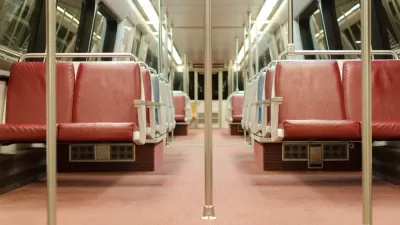
New Commute Data: Telecommuting on the Rise
The news from the most recent American Community Survey data isn't entirely bad for advocates hoping that Americans will switch to more efficient, less impactful forms of commuting.
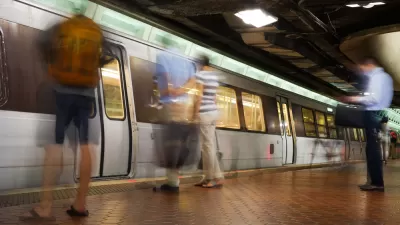
Report: D.C. Area Commuters Driving Alone Less
With all the bad news about plummeting ridership as the D.C. Metro transit system has struggled to deal with maintenance issues, a new report indicates that regional commuters are still driving alone less.
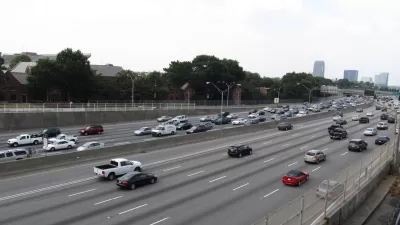
Faced With Infamously Bad Traffic, More Atlanta Residents Choose to Telecommute
More people are telecommuting in Atlanta, keeping cars of the road, but the percentages of people driving alone to work, taking transit, and walking or biking to work are holding steady.

Biking and Walking Have Lost Momentum
A decade ago it seemed like biking and walking was making a comeback that could change the commuting culture of the United States.
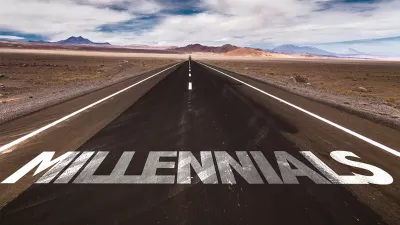
'Little Evidence of a Substantial Cultural Turn' Away from Driving Among Millennials
According to an analysis of U.S. National Travel Surveys, the Millennial preference for non-automotive travel is mostly hype. Millennials show behavior similar to other age groups and respond to the economy.
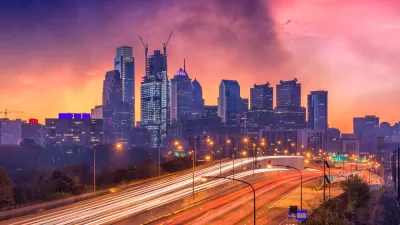
Travel Trends: Are They Changing?
Recently released travel data show Americans returning to their cars as the economic recovery deepens. Alternative forms of transportation are not attracting new users.
How to Get Los Angeles' Jewish Communities on the Bus
Jewish communities in Los Angeles, though well served by public transit, tend to shy away from buses and trains. It's a familiar trend that's due for a change.
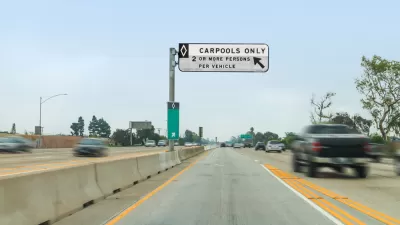
The Decline of Carpooling—Can App-Based Carpooling Reverse the Trend?
Contrary to the prevailing narrative about decreasing vehicle miles traveled runs a constant decline in the number of carpools. Very little is known about why Americans are carpooling so much less, so can mobile apps hope to reverse the the trend?
California's Parking 'Cash-Out' Program Scrutinized
California's 23-year-old "parking cash-out" program has been less than effective
Riding New Atlanta's Streetcar for a Week: a Commuter's Diary
The debate about the effectiveness of streetcars as an alternative form of transportation (rather than just a driver of property values) isn't going anywhere. The latest test case for the ongoing experiment: Atlanta.
Survey: Downtown Denver Commuters Drive Less than the Average American
A new survey of 4,962 respondents finds tremendous mode share in Downtown Denver. For instance, Downtown Denver commuters are 11 times more likely to commute by bike than the average U.S. commuter.
Switching to Transit in Atlanta—Affordable but Unlikely
Darin from ATL Urbanist picks up on a recent report by the American Public Transportation Association (APTA) finding that residents of Atlanta can save big money by ditching their cars and riding transit.
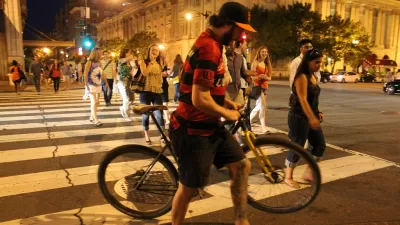
Why Millennials Drive Less: Many Possibilities, Few Answers
Millennials are less likely to get driver's licenses, they tend to take fewer, shorter car trips, and they use alternative modes of transportation more than their predecessors. The question for the ages is why.
Millennials and Gen Xers Commuting Less by Car
Following up on earlier reports about the latest commuting data from the U.S. Census 2013 American Community Survey, Joseph Kane and Adie Tomer find different trends in commute choice between age groups.
Two Narratives Derived from New Commute Data
When it comes to making sense of the American Community Survey's data on commute times, it's all about how you frame the data.
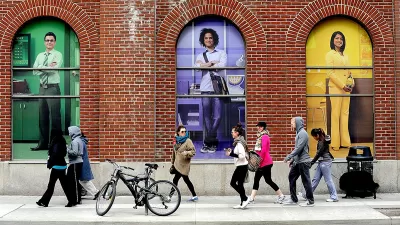
Study: Positive Psychological Effects for Walking and Biking to Work
A research study finds evidence of the positive psychological effects of walking and biking to work, joining a quickly growing body of academic research supporting multi-modal lifestyle choices.
Instagram Opens Doors to the Beautiful Homes of Philadelphia
Many users of Instagram have recognized its potential to build awareness about the beauty of urban environments. If you're still unfamiliar, consider the example of an Instagramming duo in Philadelphia.
Urban Design for Planners 1: Software Tools
This six-course series explores essential urban design concepts using open source software and equips planners with the tools they need to participate fully in the urban design process.
Planning for Universal Design
Learn the tools for implementing Universal Design in planning regulations.
Heyer Gruel & Associates PA
JM Goldson LLC
Custer County Colorado
City of Camden Redevelopment Agency
City of Astoria
Transportation Research & Education Center (TREC) at Portland State University
Jefferson Parish Government
Camden Redevelopment Agency
City of Claremont


































